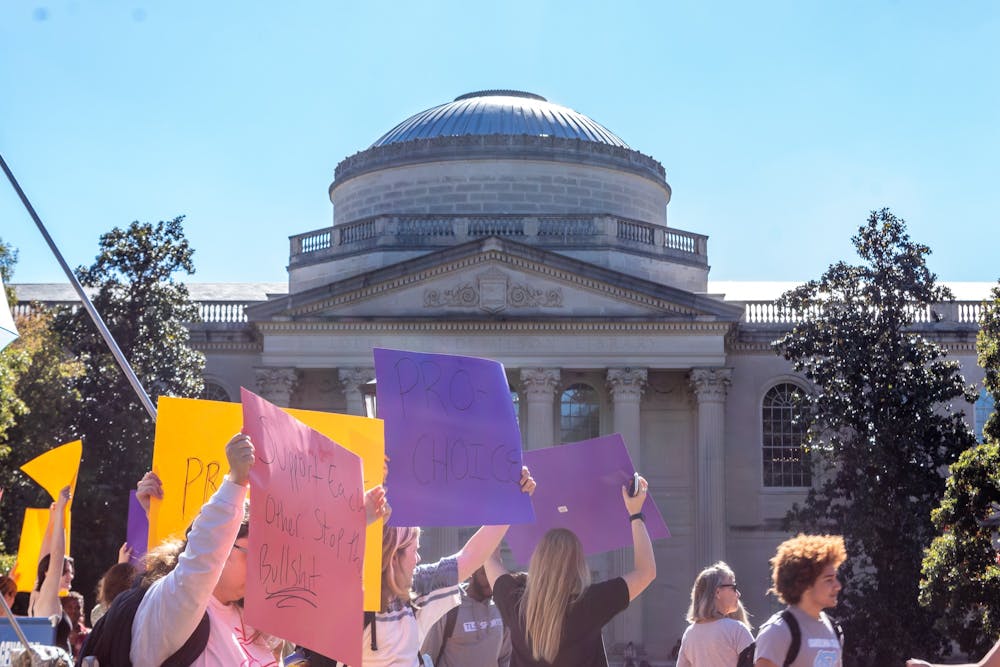When planning last fall's Democracy Day protest, UNC junior Sam Hiner faced several issues reserving on-campus spaces.
“I found that the booking process was incredibly frustrating and bureaucratic and a lot more drawn out than it needed to be, to the point where I was having heated arguments with certain administrators,” Hiner said.
Most outdoor campus spaces at UNC are open to the public. Some areas are managed by "designated units" that handle scheduling internally, according to UNC Media Relations. Information about reservable campus spaces is hosted on Reserve Carolina.
Registered student organizations, campus departments and campus-based non-affiliates can book most campus venues on 25Live, the registration tool utilized by the Carolina Union. Requesters must complete access training before they can make their first reservation. To make a reservation, requesters must submit a fifteen-section form with information about their event.
UNC's Facilities Use policy states that UNC permits gatherings in any exterior location, and University-affiliated groups are encouraged to use open space with written approval. Some spaces, like the Y-Court, the Pit and other “Major Open Spaces,” do not require prior approval.
Zach Greenberg, the senior program officer for campus rights advocacy at the Foundation for Individual Rights and Expression (FIRE), said physical spaces on UNC’s campus are fully bound to the First Amendment. The University must ensure that space usage rules are viewpoint and content-neutral. Greenberg said while private universities promise students the right to free speech on a contractual basis, public universities allow students to demonstrate on a constitutional basis.
FIRE ranked UNC the lowest of nine colleges and universities in North Carolina in its 2024 College Free Speech Rankings. The ranking is based on a compiled student survey that evaluated factors like comfort in expressing ideas, disruptive conduct and administrative support on campus. Of UNC students surveyed in FIRE’s 2024 rankings, 51 percent said they have self-censored on campus at least once or twice a month.
FIRE rates the written language in UNC’s public space policies, specifically Facilities Use and Freedom of Speech and Expression University Standard, as neutral.
Student organizers note mixed experiences using public spaces on campus for protests and rallies.



